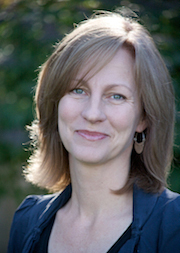Catherine Taylor, associate professor of writing, who began her writing career as a nonfiction writer, defies the separation of genres in creative writing with her latest book, “Apart.” The anthropology department at Columbia University invited Taylor to give her lecture, titled “Between Art and Politics: ‘Ficto-Criticism’ and Suspended Genres,” and a reading from “Apart” on Thursday. Taylor’s newly released book discusses the politics of South Africa and her personal connection with the country.

Staff Writer Nicole Arocho spoke with Taylor about her book and life as a creative writer and a scholar.
Nicole Arocho: What’s your latest book about?
Catherine Taylor: It’s a quirky book mainly because it is a multi-genre book, although it’s more nonfiction than the other genres. The book shifts from essays, prose poems, photographs, archives and excerpts from archives. It’s all related to South African political history but also my family’s history in South Africa.
NA: How do you feel about being invited by the Columbia University Anthropology Department to give a lecture and a reading?
CT: It was exciting to get that kind of validation in a discipline that is not my own. Professor Michael Taussig [of Columbia] read the book and wrote me a paper letter, because he couldn’t find my email, which I will treasure forever.
NA: What was your writing process behind “Apart”? How did it end up being a multi-genre book instead of just nonfiction?
CT: The book started as a very normal, standard memoir, but it became apparent to me very early on that that wasn’t going to work, because the topic was so complex, and I had a difficult time understanding it. It seemed to me that the book wanted to be as broken and fragmented as my understanding was. Otherwise it felt like a lie.
NA: How would you describe writing in collage mode?
CT: It was fun and liberating; it gave me the freedom of writing poems, essays, gathering pictures. Working this way let me use the archive material in a way that made sense to me. Using collage as my mode of writing gave me the opportunity of telling more stories rather than choosing a few and focusing on those only.
NA: Were there any authors that inspired you to write a cross-genre book?
CT: Yes, Michael Taussing is definitely one of them. He coined the term “ficto-criticism,” which mixes fiction and criticism. Also the documentary poet Charles Reznikoff, with his book “Testimony,” and Anne Carson, with her wildly lyrical essay poems. Susan Griffin is in there too. I’m going to teach her book “A Course of Stones: The Private Life of War” next semester.
NA: How is this lecture different from any other lectures you’ve done so far?
CT: Well, this is the first time that I’ll be giving a lecture related to “Apart” after the book was published, after I’d written the whole thing. Another thing that’s different is that I’m being invited to both read both as a creative artist and as a scholar.
NA: What would you recommend to students who want to be both writers and scholars like you?
CT: I would say, be patient. Some things you may want to do just take a really long time. It takes a long time to find yourself as a writer, to develop your craft, to find a place in the world and to find your community of writers. To those students who are torn between scholarly work and creative writing: You can be both.
NA: Are you already working on a new book?
CT: I am. I’m working on a project about military drones. What interests me is the complex place of the drone in human life by those who are being attacked by them. That’s what I want to explore.




